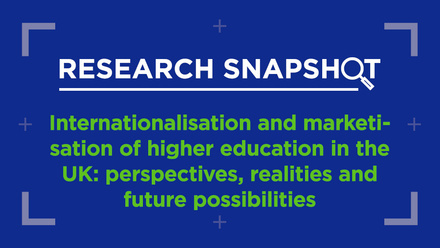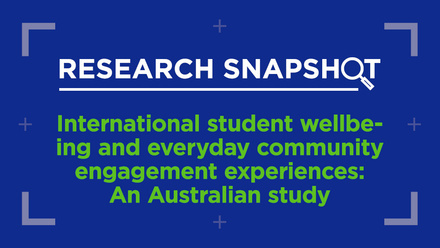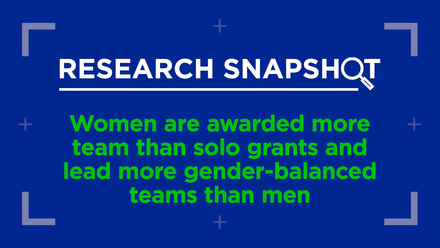Transforming international student services with AI: Session conclusions

During the 35th Annual EAIE Conference and Exhibition in Toulouse a world-café session was held on the use of Artificial Intelligence (AI) in relation to transforming international student services. While AI has already made inroads into digital education, its influence on international student services, and more specifically the International Student Lifecycle (ISL), remains underexplored. This session encouraged participants to think beyond conventional boundaries and brainstorm ideas on how AI can enhance each stage of the ISL, potentially liberating Student Services staff from repetitive tasks enabling them to focus on more value-adding support.
From pre-arrival to re-entry, AI can help institutions engage with students at each stage of their journey
Below you can find reflections and key insights generated by participants during each stage of this cycle:
1. Pre-arrival:
The pre-arrival phase is critical, setting the foundation for a student’s international journey. AI can significantly enhance the preparation process by streamlining communication, personalising information, and offering interactive tools to ease the transition.
Concrete examples shared by participants include:
-
Chatbots: One of the applications discussed was the use of AI-driven chatbots or tools to streamline email communication and respond to common student questions. By analysing the most frequently asked questions, AI can craft personalised responses and automate information delivery, saving time for both students and administrative staff.
-
Matching programs: AI could also play a role in matching students with universities or programs that best suit their skills and goals. This not only empowers students to make informed decisions but also increases the likelihood of a successful academic experience.
-
Virtual tours & gamification: To give students a better understanding of their future environment, participants suggested virtual tours of campuses, housing and cities using AI. Additionally, the idea of gamifying pre-arrival tasks — offering achievements or awards for completing stages like visa applications or housing selections — adds an engaging element to what can otherwise be a boring process.
-
Content simplification and personalisation: A recurring theme in this phase was the importance of simplifying information and personalising it to student needs. Whether it’s visa requirements or academic prerequisites, AI can analyse and present relevant content with clarity, saving students from overwhelming amounts of complex information and therefore make information more accessible.
2. Arrival & welcome:
The arrival stage presents numerous challenges for international students, from navigating through a new city to finding their way around campus. AI-driven tools could provide much-needed support to help students settle in smoothly.
Concrete examples shared by participants include:
-
Chatbots: Just as in the pre-arrival phase, chatbots can assist students 24/7 with their questions, providing instant answers to queries ranging from campus facilities to local transportation. This real-time support could ease the anxiety associated with arriving in a new country.
-
Campus and city navigation: AI-generated interactive campus maps and visual tools were suggested to help students get familiar with their surroundings. Using technologies like geolocation, treasure hunt-style apps could make it easier — and even fun — for students to explore their new environment.
-
Buddy systems & local guides: The fact that there is a student need for better integration with local students is a known issue. AI-driven buddy systems or local guide apps, which connect international students with local peers, could foster a sense of community and support.
3. During stay:
The period during a student’s stay abroad can be both exhilarating and challenging. AI-driven tools can assist students in navigating academic and personal difficulties while ensuring they remain on track for success.
Concrete examples shared by participants include:
-
Academic support: One key idea of interest/discussion was the use of AI to track student progress and identify those at risk of academic failure. By analysing grades and participation, AI could notify students about important deadlines or suggest adjustments to their study plans.
-
Mental health and student well-being: AI can analyse data from students' digital interactions to detect signs of stress, anxiety or other mental health challenges.
-
AI-driven student services: Chatbots directing students to relevant services, such as health and wellness, could also ease the pressure on student support systems, ensuring that international students know where to turn for help.
-
Ethical AI use: The session raised important ethical questions, emphasising the need for transparency and explainability in AI systems. As AI tools become more integrated into academic and personal support systems, ensuring students understand how decisions are made is crucial.
4. Pre-departure:
As students near the end of their studies abroad, the pre-departure phase can be overwhelming, with administrative tasks and personal reflections demanding attention. AI can automate much of the burden, allowing students to focus on their personal growth and future goals.
Concrete examples shared by the audience include:
-
Automated surveys & reminders: Automating tasks such as checkout surveys, pending payments, and contract terminations can simplify the often-complicated process of closing off accounts and administrative responsibilities before leaving.
-
Reflective tools: Participants suggested that AI could assist in translating international experiences into career-ready skills, helping students evaluate their time abroad and prepare for the next stage in their careers. AI-based reflection tools could help students articulate their academic and personal growth in ways that resonate with future employers.
-
Pre-departure meet-ups: AI could also help organise pre-departure events, schedule meetings and send reminders, ensuring that students leave with a clear sense of closure and connection to their experience.
5. Re-entry:
The re-entry phase, often overlooked, is a critical time for international students as they adjust back to life in their home country. AI can play a role in helping students leverage their international experiences for career growth and personal development.
Concrete examples shared by participants include:
-
Alumni networks: AI-driven alumni platforms were identified as valuable tools for fostering connections between returning students and their peers. Targeted networks, based on shared experiences, could help students maintain international ties and foster professional development.
-
Career counselling tools: AI tools could provide personalised career advice, suggesting industries or roles that align with the skills gained during their international experience. Additionally, these tools could help returning students craft impactful CVs and cover letters.
-
Insights from data: By analysing student data, AI can assess the impact of international programs, helping institutions refine their offerings while making students feel heard and valued. This data could also be used to improve student testimonials, create learning opportunities, and provide institutions with actionable feedback on the student experience.
What should we keep in mind?
This session openly discussed the potential for AI to support the ISL. From pre-arrival to re-entry, AI can help institutions engage with students at each stage of their journey and can significantly improve how universities support their students by providing personalised, efficient and sustainable services.
However, discussion at the tables also touched upon the tensions present within AI's development and use. Alongside ensuring ethical, transparent and student-centred AI applications, it is also important to consider the position of the International Office managers and workers. AI is fast moving, and International Offices are already facing several challenges in the digital transformation of their processes, particularly regarding inadequate provision of training. Therefore, a comprehensive training program on how to implement AI and other digital aspects of support services provision was proposed as a countermeasure.
It is also important to consider the effect upon human interaction if we continue applying and developing AI in our daily jobs. We should not lose sight of the fact that, sometimes, users might require specialised contact and communication, beyond that which an AI-driven tool can provide. In this case, we could benefit from the digitalisation of the service to provide a more personal and ad-hoc service to our students.
In conclusion, the session highlighted the potential in using AI to make an international experience more impactful and improve operational efficiency. However, it was also clear that AI shouldn't be understood as a universal solution.






